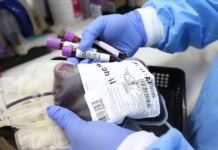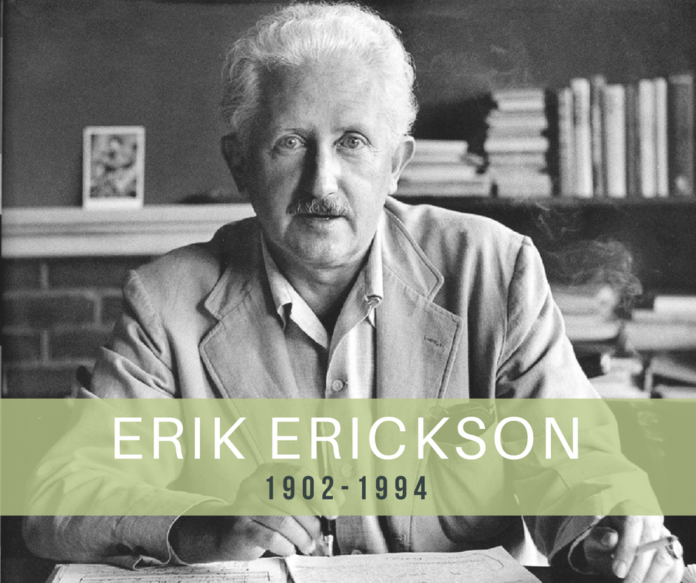Being one of the twelve most cited psychologists of all time; everything that came from this great man should be carefully considered and not taken lightly. Erik Erikson found that human being develops their personality in a predetermined order through eight stages of psychological development, starting as early as infancy to adulthood. Depending on how the psychological crisis impacts the person and how the whole experience is processed, the outcome for personality development might be positive or negative. Erikson determined that the crisis appear because the psychological needs of the individual conflict with the need of society. A successful development of each stage during development results in a healthy developed personality able to resolve the subsequent crisis, while failure to complete all stages leads to unhealthy personality and low self-esteem. However, all stages can be successfully resolved later with the help of therapy conducted by a trained professional.
The eight stages Erik Erikson determined are as followed:
- Trust vs. Mistrust – the first intimate feeling during infancy develops from the trust the infant has for the caregiver when they manage to meet their needs. The inability to meet the infants’ needs leads to feeling unsafe.
- Autonomy vs. Shame and Self-doubt – During the toddler phase the second intimacy feeling develops, and it requires freedom to explore the surroundings by itself. The caregiver should give the feeling of safeness, however, it should let the child some independence to explore.
- Initiative vs. guilt – during preschool, a conflict emerges when you are given the freedom to make your own decision, but guilt also may appear if you feel you are not meeting your caregiver’s expectation. Intimacy develops by encouraging a young child to create their own goals.
- Industry vs. Inferiority – in this stage intimacy of formed when during early elementary school kids start to compare each other to themselves. The industry is when kids feel satisfied with the comparison, while inferiority happens when kids are being criticized for what they do.
- Identity vs. Role confusion – this is the teenage stage, finding out more about you. When teens establish their goals and priorities, they succeed in having an identity, while role confusion happens because of lack of confidence, and when the teen is mixing roles.
- Intimacy vs. Isolation stage – this is a long stage and can occur from the early 20s to the 40s. The intimacy stage is described as love needing, relationship capable stage, and involves intimate, loving relationships. On the other side, isolation occurs when people don’t form relationships, and often isolation turns into loneliness. This stage is the most confusing one, and in this stage, therapy is very important.
- Generativity vs. Stagnation – Starting in middle adulthood you start focusing on important choices, careers, or kids. Generativity leads to parenting and mentoring younger people, and usually are community contributors. Stagnation leads to career chasing and can lead to a poor relationship.
- Integrity vs. Despair – the stage occurs during the senior years. Integrity appears when people are satisfied and enjoy life, without the fear of death or growing old. Despair means regrets and can end up with depression caused by the feeling of a wasted life.
There isn’t an exact mechanism how to successfully fulfill any of the stages, or how to move from one to another, but still has a broad framework from which you can observe each of the stages. It also shows the importance of relationships in the development of your character and personality. This is especially important during stage 6, Intimacy vs. Isolation, and this stage has been widely searched and examined in the past months, especially because of the corona caused quarantine, which has put a lot of people in self-isolation, causing a hastened emerge of the results of the stage.
Erik Erikson found that people must develop committed and close relationships, mostly romantic, but close friend relationships also will do the trick. In early adulthood, creating a relationship is of utmost importance for the sixth stage. Successfully developing this stage will result in a strong romantic relationship and the ability to make close relationships at work and with a friend. Failure to do that will result in poor romantic relationships, poor intimacy, and inability to make friends, isolation, and finally loneliness. What people need to focus on this stage for successful completion is forming an intimate relationship, not just sexual, but the close connection with friends, the ability to share intimate feelings, long-term commitment, and the ability to care for others.
According to Erikson, people who have a strong sense of self are more able to develop and maintain a close intimate relationship, while insecurity can lead to the opposite inability to create relationships and may lead to loneliness, depression, anxiety, and other mental problems.
Isolation often occurs when people are unable to find a partner. The feeling of alone and the feeling of inferiority grow with time, and insecurities will develop. Some people refuse to make a close relationship, either from fear of losing their identity, their freedom, or just the treat of closeness, manifesting their isolation and/or loneliness.
Loneliness is not just being alone; it is a manifestation of a mental condition, and a prolonged sensation of the feeling can lead to serious mental and physical health problems. Social isolation can be a trigger in an unsuccessful competition at this stage, causing a feeling of loneliness with a more intense degree. The feeling of loneliness leads to depression, low self-esteem, and anxiety which then leads to further isolation from any people.
The number of people forced to isolation because of enforced quarantine, no matter how noble reasons, lead to many new cases of loneliness, and only time will tell how many of these cases will evolve negatively. Not only social isolation, but also self-isolation might cause the same effect, regardless if you are locked together with your family, or all alone, the symptoms of isolation might affect you as well. Isolation causes physical health problems in a short time if no action is taken, symptoms might occur showing signs of depression, like loss of appetite, headaches, muscle aches, constant fatigue, and loss of interest in everyday activity and at more severe cases, insomnia.
What is important in these difficult times is to take action, look, or help from a professional, therapist, support group, online therapy, and telephone therapy. Any help is more than welcomed, and fortunately now in these modern times, widely available!
References:
- https://www.simplypsychology.org/Erik-Erikson.html
- https://www.betterhelp.com/advice/intimacy/what-else-you-dont-know-about-erik-eriksons-intimacy-vs-isolation/
- https://www.verywellmind.com/erik-eriksons-stages-of-psychosocial-development-2795740
- https://www.verywellmind.com/intimacy-versus-isolation-2795739
- https://courses.lumenlearning.com/teachereducationx92x1/chapter/eriksons-stages-of-psychosocial-development/
- https://www.ncbi.nlm.nih.gov/pmc/articles/PMC2733523/























